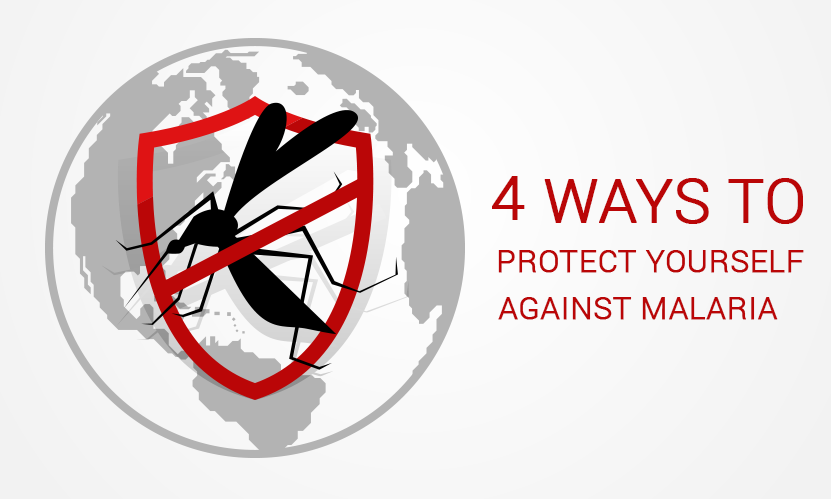4 Ways to Protect Yourself against Malaria
Malaria is a mosquito-borne disease which is usually transmitted through the bite of an infected Anopheles mosquito that carries the Plasmodium parasite. As the parasites enter inside your body as a result of the mosquito bite, they travel to the liver and mature.
These mature parasites then enter the bloodstream and start infecting the red blood cells. Once the parasites inside the red blood cells begin to multiply, they cause the infected cells to burst open, leading to the symptoms of malaria that occur in cycles and last for 2-3 days at a time.
Causes of Malaria
Typically, any person who is bitten by a mosquito infected with Plasmodium parasite can suffer from malaria. However, there are four kinds of parasites that can cause malaria in humans. These include Plasmodium vivax, P. malariae, P. ovale, and P. falciparum, out of which P. falciparum causes the most severe form of malaria.
The disease can also be passed by an infected mother to her baby at the time of birth. This transfer of disease is termed as congenital malaria. Apart from this, malaria can also be transmitted through blood. Hence, some of the other ways of transmission of the infection include organ transplant, transfusion, and using shared syringes or needles.
Symptoms of Malaria
The symptoms of malaria depend upon which parasite has caused the infection. Typically, malaria symptoms can begin to appear within 10 days to 4 weeks following the infection. Some of them include:
- Moderate to severe shaking chills
- Headache
- Nausea and vomiting
- Excessive sweating
- Blood in the stool
- High fever
- Muscle and abdominal pain
- Diarrhea
However, it is important to remember that some malaria parasites can remain dormant for a long time even after entering the body.
Protection against Malaria
While the medications manufactured by the top Indian pharma companies offer an effective treatment of the disease, avoiding mosquito bites is the best way to stay away from malaria infection. Some of the best ways of avoiding mosquito bites include:
Mosquito Nets
For people who are living in basic accommodation without air conditioning, sleeping inside mosquito nets is of utmost importance to stay protected from the disease.
Loose-fitting Clothing
The malaria-causing mosquitoes are most active during the evenings. Hence, it is important for people travelling in malaria prone areas to wear loose-fitting long trousers and full sleeves shirts during this time. As the malaria-causing mosquitoes can bite through tight-clothing, wearing loose clothes becomes highly essential.
Mosquito Behavior
Generally, the malaria-causing mosquitoes bite between dusk and dawn. Hence, staying indoors during this time will reduce the chances of a mosquito bite.
Insect Repellent
It has been seen that insect repellents containing the chemical DEET, when used according to the instructions, offer effective protection against the malaria-causing mosquitoes. DEET is available in various strengths to ensure its safety on the skin. However, the duration of protection they offer is affected by several conditions such as sweat, heat and humidity.
While staying protected from mosquito bites will save you from malaria infection, it is important to visit a doctor if you notice any symptoms of the infection. Also, consuming only the top quality medications like Mankind pharma products is equally important in order to cure the disease effectively.
Disclaimer This blog solely intended for the educational/informational/awareness purposes and is not a substitute for any professional medical advice, diagnosis or treatment. Please consult your doctor/healthcare professional before acting on the information provided on the blog. Reliance on any or all information provided in the blog, is solely at your own risk and responsibility. Mankind Pharma Limited shall not be held liable, in any circumstance whatsoever.











